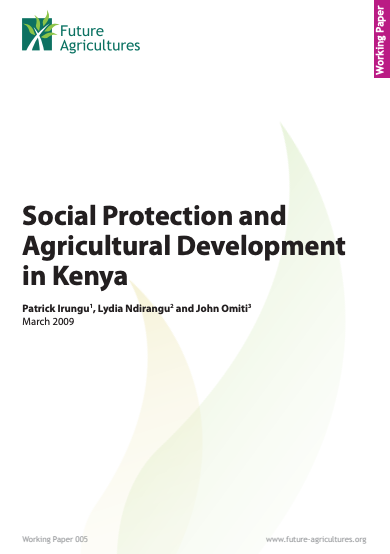Social Protection and Agricultural Development in Kenya

This paper focuses on social protection programs in Kenya’s agriculture. A case study approach was used where three cases were examined: (a) emergency seed distribution in the arid and semi-arid lands and remote areas which are inadequately served by the formal seed sector, (b) hunger and safety net programme in northern Kenya, and (c) Njaa Marufuku Kenya. The study found that while social protection programs/strategies are necessary to cushion vulnerable groups from covariate risk, these have not been properly domesticated in the Kenyan policy and legal frameworks. In fact, the national response to shocks and stresses among the vulnerable groups has largely been ad hoc. Emergency interventions have been implemented in rather haphazard and knee-jerk approach with minimal strategic policy focus. And even where social safety nets have been implemented, these have largely been untargeted, uncoordinated and humanitarian in nature. Hence, although some efforts have been made in the past to entrench social protection in the Kenyan society (e.g., the Equity Bill, the Affirmative Action Bill and the Constitutional Review), these initiatives have suffered from lack of political goodwill, ethnic and class chauvinism and political patronage. There is therefore a need for the Kenyan society as a whole to re-define its strategic direction with regard to empowering poor households to enable them cope with shocks. The starting point would be to design a comprehensive social protection policy that is now in progress.